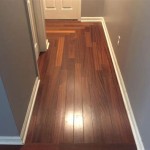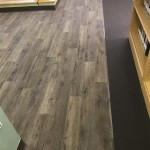Horse Trailer Floor Replacement Cost
Replacing a horse trailer floor is a significant investment crucial for equine safety and trailer longevity. Several factors influence the final cost, making it essential for owners to understand the variables involved before undertaking this project. This article explores the different aspects affecting horse trailer floor replacement costs.
Factors Affecting Horse Trailer Floor Replacement Cost
Several key elements contribute to the overall expense of replacing a horse trailer floor. Assessing these factors allows for a more accurate cost estimation and informed decision-making.
- Trailer Size: Larger trailers naturally require more materials, increasing both material and labor costs.
- Material Choice: Different flooring materials offer varying levels of durability, longevity, and cost-effectiveness. Wood (treated lumber or hardwood), aluminum, and composite materials each present unique cost considerations.
- Labor Costs: Professional installation typically incurs labor charges, which can vary based on geographic location and the complexity of the job.
- Trailer Condition: Pre-existing damage, such as rust or rot, may require additional repairs, adding to the overall project cost. This might include frame repair or wall patching.
- Removal of Old Flooring: Disposing of the old flooring material also contributes to the overall cost. This can involve landfill fees or specialized disposal methods for certain materials.
- Additional Features: Adding features like mats, coatings, or drainage systems will increase the project's total cost. These additions can enhance the trailer's functionality and longevity but should be factored into the budget.
Material Options and Cost Considerations
The chosen flooring material significantly impacts both the cost and the long-term performance of the new trailer floor. Each option presents its own set of advantages and disadvantages regarding durability, maintenance, and cost-effectiveness.
- Treated Lumber: A common and relatively affordable option. Requires regular maintenance and is susceptible to rot and insect damage.
- Hardwood (e.g., Apitong): More durable and longer-lasting than treated lumber but comes at a higher initial cost. Offers better resistance to wear and tear.
- Aluminum: A lightweight and corrosion-resistant option. Generally more expensive than wood but requires less maintenance and offers superior longevity.
- Composite Materials: Engineered materials offer a balance of durability, water resistance, and ease of maintenance. Cost varies depending on the specific composite material used.
Estimating Labor Costs
Labor constitutes a substantial portion of the total floor replacement cost. Factors such as geographic location, the complexity of the job, and the chosen contractor can influence the labor charges. Obtaining multiple quotes from reputable professionals is recommended.
- Geographic Location: Labor rates can vary significantly based on regional economic conditions.
- Contractor Experience: Experienced contractors with a proven track record might charge higher rates but often offer better workmanship and project management.
- Project Complexity: Extensive repairs or modifications, along with the specific trailer design, can add to the labor time and therefore the overall cost.
Preparing for the Replacement Process
Adequate preparation is crucial for a smooth and successful floor replacement process. Planning and gathering necessary information beforehand can help avoid unexpected costs and delays.
- Research and Obtain Quotes: Contact multiple contractors or suppliers to compare prices and services.
- Inspect the Trailer Thoroughly: Assess the existing floor and identify any additional repairs needed, such as frame damage or rust.
- Choose Appropriate Materials: Select the flooring material based on budget, desired durability, and maintenance requirements.
- Schedule the Replacement: Coordinate with the chosen contractor to schedule a convenient time for the replacement process.
Long-Term Cost Considerations
While focusing on the initial replacement cost is essential, considering the long-term expenses associated with different flooring options is equally important. Factors like maintenance requirements and material lifespan contribute to the overall cost of ownership.
- Maintenance: Wood floors require regular sealing and treatment to prevent rot and insect damage, adding to the long-term cost. Aluminum and composite materials typically require less frequent maintenance.
- Lifespan: Durable materials like aluminum and composites offer a longer lifespan, reducing the need for frequent replacements compared to wood options.
- Resale Value: Investing in high-quality flooring can enhance the resale value of the horse trailer.
DIY vs. Professional Installation
Choosing between a do-it-yourself (DIY) approach and professional installation depends on individual skills, available time, and budget constraints. While a DIY approach can save on labor costs, professional installation often ensures a higher quality and more efficient outcome.
- DIY Approach: Requires appropriate tools, skills, and time commitment. Potential for cost savings but also carries the risk of improper installation.
- Professional Installation: Offers expertise and efficiency, resulting in a higher quality finished product. Involves labor costs but often comes with warranties or guarantees.
Finding Qualified Professionals
Selecting a reputable and experienced contractor is essential for a successful floor replacement. Researching and obtaining referrals can help identify qualified professionals who deliver quality workmanship.
- Referrals: Seek recommendations from fellow horse owners, veterinarians, or equine supply stores.
- Online Reviews: Check online reviews and ratings of contractors in the area.
- Portfolio and Experience: Review the contractor's previous work and experience with horse trailer floor replacements.
- Licensing and Insurance: Verify that the contractor is licensed and insured to protect against potential liabilities.

5 Types Of Horse Trailer Flooring How To Choose One Farm House Tack

Coolfloor Rubber Trailer Flooring By Coolhorse

Do It Yourself Replace Your Trailer S Tack Room Flooring Diy Horse Ownership

Horse Trailer Floor Failure Is Your Strong Enough

Horse Trailer Floor Failure Is Your Strong Enough

Horse And Livestock Trailer Purchasing 101 Part 4 Red Gate Farm

Horsebox Floor Replacement Diy

How To Replace The Floor Of A Horse Trailer North Ina S

Horse And Livestock Trailer Purchasing 101 Part 4 Red Gate Farm

Why We Don T Recommend Werm Polylast Or Rhino Lining For Your Horse Trailer Floor
Related Posts








